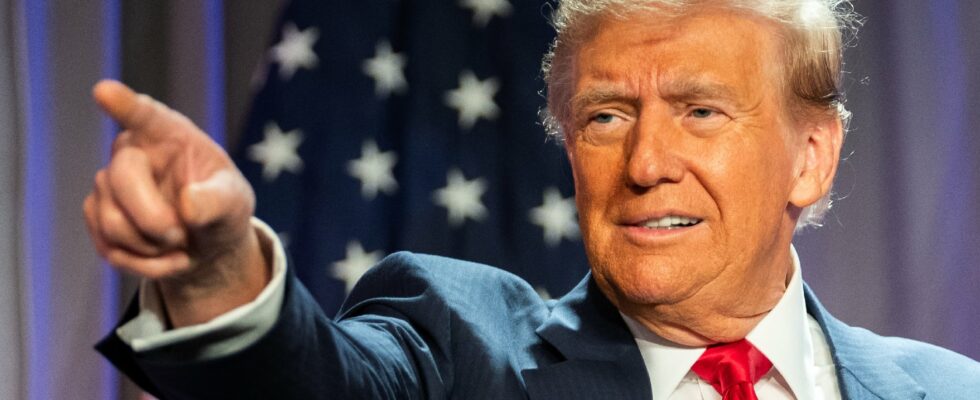“Tyranny of freedom of expression”: the formula will seem oxymoral. However, it is difficult to use another term when looking at this video of Donald Trump, dating from 2022, but re-shared, a few days ago, with enthusiasm by Elon Musk to his 204 million viewers. followers on X. “Without freedom of expression there is no free country, it’s as simple as that,” says Donald Trump. He accuses the media, the “deep state”, the tyrants of Silicon Valley… of having censored important information concerning elections or public health. This cartel must be dismantled and destroyed, he continues.
And for this, his plan is very clear: the very minute he is in charge, he will sign the order to ban from the administration all those who have collaborated in this type of action and to dry up all the funding that contribute to labeling content by stigmatizing it as “false information”. In particular, he threatens universities involved in research on fake news with being deprived of federal resources, including student scholarships.
Regulation of false information on social networks
The term “censorship” conceals, in the mouth of the future president of the United States, the question of the regulation of false information on social networks. He who spread lies all day long, particularly concerning the imaginary rigging of the 2020 election, does not want the question of the possibility of fair debate in democracy to arise. For Donald Trump, this is an attack on freedom of expression, forgetting that the unconditional use of freedom leads to the worst tyranny.
Thus, the possibility of taking whatever we want necessarily interferes with the freedom of others to benefit from the right to property or to dispose of their bodies as they wish. Laws and the regulation of behavior in a social space are, certainly, a limitation of a radical form of freedom but they guarantee its very possibility. It turns out that this evidence also applies to the cognitive market which has become cacophonous and gives competitive advantages to conflictuality or false information and to those who, in general, speak more and louder than others, like – what coincidence – Donald Trump supporters. What is therefore in danger is a space of common thought which is absolutely necessary for democratic life.
Democracy of the gullible
Donald Trump’s threats, if they succeed, will bring us a little closer to The democracy of the gullible the contours of which I described in a book published in 2013. They should be taken seriously because attacks against researchers on the issue of disinformation have already begun in the United States. Indeed, the famous Observatory of Internet Abuses at Stanford University closed its doors under the legal attacks of the Republicans. These people – who share the most false information – do not like that we can do research on these subjects. So they ended up legally strangling academics who work to protect democracy. Ongoing lawsuits and two congressional investigations into the Observatory have cost Stanford millions of dollars in legal fees.
One of the strategies was, for example, to summon representatives of universities to intimidate them in the hope of putting pressure on the donors of these establishments who we know are essential in the knowledge economy across the Atlantic. And this is how research is threatened. And how better to ignore a fever than by breaking the thermometer?
We can still wonder whether Donald Trump will consider European countries as tyrannies and how he will treat them, if so, given that they have implemented very proactive regulation of the cognitive market: the Digital Services Act. This has vigorously regulated the activities of the platforms since February 17, 2024, but will it be sufficient? We must now expect to be caught between the hammer of countries practicing cognitive warfare like Russia and their useful idiots – the United States – who make their right to do so a moral principle.
Gérald Bronner is a sociologist and professor at La Sorbonne University.
.
